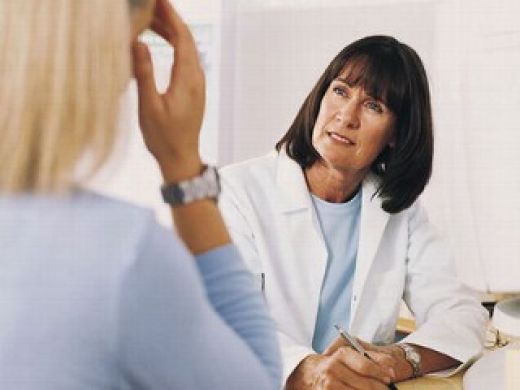
Gynecologist is a doctor that deals with diseases of women, especially the ailments related to female genital tract, hormonal imbalances or altered reproductive physiology. A woman usually sees a gynecologist and obstetrician for the management of pregnancy but there are some other conditions for which a gynecologist should be consulted. Every woman should be aware of the conditions in which they need to see a gynecologist. Following are some circumstances where a woman should seek a gynecological opinion. Knowledge of these would help women to discuss their symptoms with your doctor.
1. Puberty
Every mother should consult a gynecologist after her daughter first experiences a periods. As for the first few years after puberty, the periods tend to be irregular and girls have certain queries related to the anatomic and physiological changes in their body. At this time they need expert advice and reassurance which could best be provided by a gynecologist.
2. Abnormal menstrual bleeding/missed periods
If your periods last longer than 7 days or if you have to change your pad every two to three hours, let your gynecologist know. This could be due to a tumor, an infection, or some thyroid disorder. If you feel weakness and lightheadedness during menstruation, you should also call your OB/GYN doctor because this could be a sign of severe anemia. Irregular or infrequent periods can be due to polycystic ovarian disease or hormonal imbalance. A missed period is usually a sign of pregnancy but other medical conditions need not to be ruled out. For this reason a gynecologist should be consulted.
3. Vaginal bleeding other than regular menstrual flow
Vaginal bleeding occurring other than their schedule monthly time of flow may warrant a consultation with a gynecologist. Occasional spotting should not be feared, but if the bleeding is prolonged, heavy, and painful, it would be the right decision visit a gynecologist. This could be due to an injury to the vagina, abortion, or even a malignancy of the cervix (neck of the uterus) or uterus. Also, if the bleeding occurs after menopause (a period in woman’s life when there is cessation of periods and termination of menstrual life), you should see a gynecologist, as this could be a sign of uterine cancer.
4. Pelvic pain
Pain in pelvis and lower abdomen may occur due to a pelvic infection, a ruptured ovarian cyst, an ectopic pregnancy (development of pregnancy outside the uterine cavity), uterine fibroids (nonmalignant tumors arising from the smooth muscle layer of the uterus), or endometriosis (occurrence of tissues that make lining membrane of the uterus other than their usual site).
4. Unusual discharge or soreness in vagina
Vaginal discharge other than bleeding may be due to an infection. It could be yellow, green, or grey in color and may be associated with soreness, itching, and burning. Vaginal yeast infection is the most common cause of vaginal discharge, although some bacterial infections could also be attributed. Vaginal discharge with severe soreness in the genitals along with a rash in the area could be a sign of herpes. A gynecologist will better diagnose the exact cause and would provide adequate treatment.
5. Painful sex
This is a common condition and reported by 1 in every 5 women at some point in their lives. The pain could be felt deep in the pelvis or could be experienced just as soreness around the genital area. Common causes are dryness of vagina, infections, or uterine fibroids. Your gynecologist will examine you and perform certain tests to reach out at the exact diagnosis.
6. Problems with urination or bowel movements
Sometimes urinary incontinence or difficulty moving your bowels could be due to gynecological issues. It could occur after childbirth when the pelvic floor muscles become damaged or weak. For muscle weakness, your gynecologist may suggest special pelvic floor strengthening exercises, but if the damage is due to a tear, surgery may advised by the gynecologist.
7. Routine checkups
In the absence of any disorder, routine checkups should be done by a sexually active female and/or a woman who has reached the age of 21 years (whichever comes first). This will help determine the problem before it becomes complicated.
If you are experiencing any of these above problems, see a gynecologist. A gynecologist will evaluate and manage the problem and let you feel better by providing reassurance.


